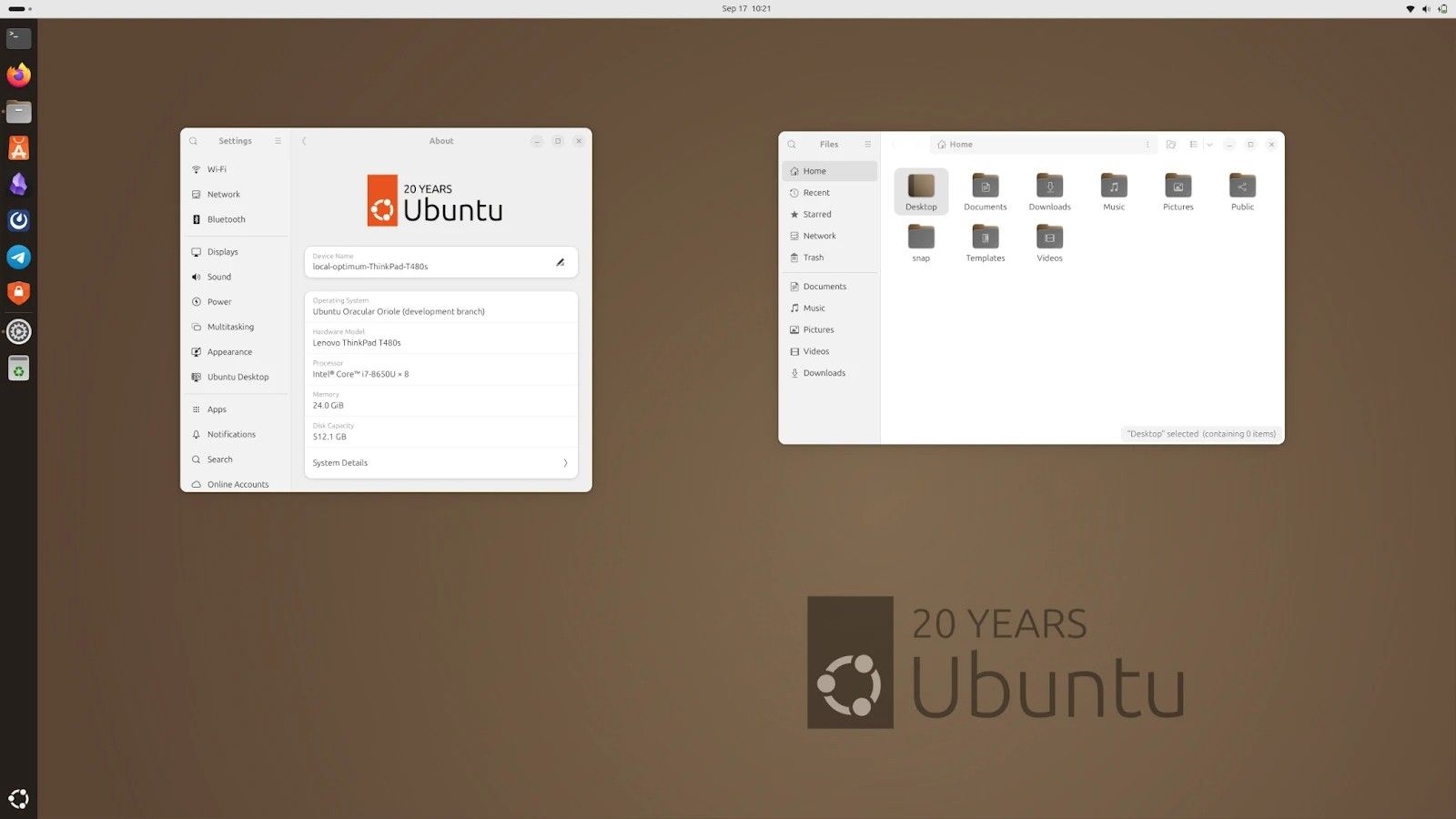Ubuntu 24.10, codenamed Oracular Oriole, has released today. It’s coming with many new features, including some that mark the 20th anniversary of the operating system.
Ubuntu 24.10 is available to download and install from the official website. It ships with the Linux 6.11 kernel and the latest GNOME 47 desktop enviroment. This version switches to Wayland by default for hardware with NVIDIA graphics, matching the previous Xorg transition for Intel and AMD graphics users, and uses the open-source NVIDIA 560 kernel modules by default on supported hardware. The kernel also has kdump-tools, which enables kernel crash dumps by default. This helps streamline troubleshooting by automatically capturing critical data after a crash.
To celebrate Ubuntu’s 20th anniversary, the operating system now includes a special accent color, anniversary wallpapers, and the original startup sound based on the first release: Ubuntu 4.10 Warty Warthog. That’s a fun throwback.
Canonical also said in its blog post, “For gamers, significant improvements have also been made to the compatibility of the Steam snap, with an expanded permissions model and improved NVIDIA driver support. The Steam snap also bundles gaming-specific Mesa PPAs to deliver optimized performance out of the box when combined with the low latency settings enabled in the latest kernel.”
Updates are also visible in the Ubuntu Dock, which better handles Progressive Web Applications. The OpenJDK 21 and OpenJDK 17 packages in Ubuntu have also changed and are now TCK (Technology Compatibility Kit) certified on amd64, arm64, s390x, ppc64el, and armhf. Passing the TCK tests means the OpenJDK packages for version 17 and version 21 on Ubuntu are compliant with the Java SE specification for their corresponding versions.
Finally, Ubuntu 24.10 is the first interim release to include OpenVEX and OSV formats for vulnerability reporting by default. These reporting standards give an open approach to producing and reading vulnerability information, which should reduce the complexities of vulnerability management.
Source: Ubuntu Blog




